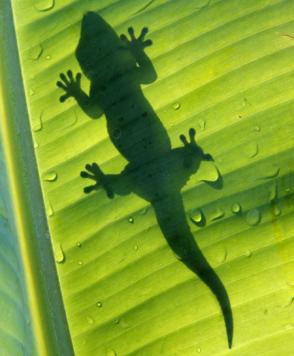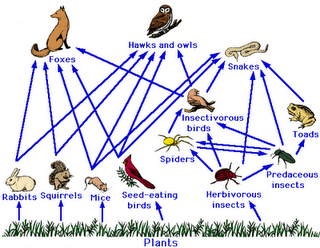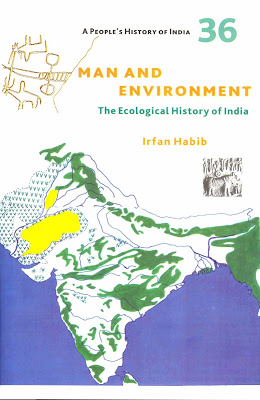 Ecology is generally spoken of as a new science, having only become prominent in the second half of the 20th Century. More precisely, there is agreement that ecology emerged as a distinct discipline at the turn of the 20th Century, and that it gained public prominence in the 1960s, due to widespread concern for the state of the environment[1]. Nonetheless, ecological thinking at some level has been around for a long time, and the principles of ecology have developed gradually, closely intertwined with the development of other biological disciplines. Thus, one of the first ecologists may have been Aristotle or perhaps his student, Theophrastus, both of whom had interest in many species of animals. Theophrastus described interrelationships between animals and between animals and their environment as early as the 4th century BC (Ramalay, 1940).
Ecology is generally spoken of as a new science, having only become prominent in the second half of the 20th Century. More precisely, there is agreement that ecology emerged as a distinct discipline at the turn of the 20th Century, and that it gained public prominence in the 1960s, due to widespread concern for the state of the environment[1]. Nonetheless, ecological thinking at some level has been around for a long time, and the principles of ecology have developed gradually, closely intertwined with the development of other biological disciplines. Thus, one of the first ecologists may have been Aristotle or perhaps his student, Theophrastus, both of whom had interest in many species of animals. Theophrastus described interrelationships between animals and between animals and their environment as early as the 4th century BC (Ramalay, 1940).
Contents |
18th and 19th century ~ Ecological murmurs
The botanical geography and Alexander von Humboldt
Throughout the 18th and the beginning of the 19th century, the great maritime powers such as Britain, Spain, and Portugal launched many world exploratory expeditions to develop maritime commerce with other countries, and to discover new natural resources, as well as to catalog them. At the beginning of the 18th century, about twenty thousand plant species were known, versus forty thousand at the beginning of the 19th century, and almost 400,000 today.
These expeditions were joined by many scientists, including botanists, such as the German explorer Alexander von Humboldt. Humboldt is often considered a father of ecology. He was the first to take on the study of the relationship between organisms and their environment. He exposed the existing relationships between observed plant species and climate, and described vegetation zones using latitude and altitude, a discipline now known as geobotany.
In 1804, for example, he reported an impressive number of species, particularly plants, for which he sought to explain their geographic distribution with respect to geological data. One of Humboldt's famous works was "Idea for a Plant Geography" (1805).
]]>Here's a timeline of ecology as a science:
-
late 1700's Antoine Lavoisier, a chemist, discovered Oxygen and Carbon and their importance to living things
- 1852 Robert Angus Smith connected acid rain to air pollution
- 1869 Ernst Haeckel coins the term ecology
- 1875- Eduard Seuss defines the biosphere
- 1879 Symbiosis is first described
- late 1800's animal camouflage studied and described
- 1900 Henry Chandler Cowles studies ecological succession
- 1915 Ecological Society of America founded
- 1927 Charles Elton makes the concept of food chains and webs part of ecology
- 1933 Aldo Leopold writes Game Management, beginning the discipline of wildlife management
- 1935 The Dust Bowl crisis re-focuses ecology on practical land usage practices
- 1935 Arthur Tinsley defines ecosystem
- 1940's Ruth Patrick studied interdependence of organisms, particularly freshwater ecosystems. She developed methods to measure the health of a stream.
- 1950's People first become aware of the harmful effects of pollution on ecological systems and on people.
- 1951 Nature Conservancy is founded.
- 1953 Eugene Odum, Howard Odum wrote the first ecology textbook and ecology becomes a university course.
- 1970’s James Lovelock’s idea of Gaia, that the whole earth is one living entity and will ensure its own survival even if humans destroy themselves
- 1972 Acid rain effects on lakes is discovered and studied by Harold Harvey
- 1978 Conservation Biology established as a discipline focusing on environmental management
- 1980’s Scientists discover hole in the ozone over Antarctica
- 1980’s Water pollution seriously reduced due to new sewage treatment practices
- 1980's Air pollution reduced in cities as unleaded gas and catalytic converters are used in autos
Lamarck with his theory of evolution, proposed that the environment is in constant transformation, by which agencies need change and make an effort to achieve this, and this is a mechanism of evolution, one of the main bases of ecology taking into account the relationships of organisms and their environment.
On the other hand, not only the agencies change and evolve, but also the Earth’s crust. The English geologist Charles Lyell found that the Earth’s crust is the result of gradual changes throughout the history of the planet. Giving way to the transformation of ecosystems and their functions.
Modern ecology, actually had its principles with the development of the theory of Darwinian evolution. He noted that the environment is constantly changing which causes the agencies with best adaptations are those who survive by the mechanism of natural selection. Highlighting the importance of the interaction of organisms with their environment.
]]> Volume 36 in the Tulika Books, New Delhi series, A People’s History of India, Man and Environment: The Ecological History of India by Irfan Habib has just been published.
Volume 36 in the Tulika Books, New Delhi series, A People’s History of India, Man and Environment: The Ecological History of India by Irfan Habib has just been published.
"Increasing interest has been shown in recent decades in matters relating to ecology, especially under the influence of the debate on climate change. The scope of ecology is, of course, much wider than that of climate alone, and involves in addition not only human relation with all species of animals and plants but also those conditions of human societies (material and intellectual) that influence our responses to the opportunities and challenges posed by nature. It is with this wider sense in mind that the history of ecology has been treated in this volume.
Prepared under the scheme of A People’s History of India, this volumes strives to conform to the approach, style and conventions followed by the preceding volumes of the series. Extensive extracts from sources have been provided; and there are special notes on Ecology, Climatology, Zooarchaeology, Natural History and Forestry. The reader may find in the Bibliographical note appended to each chapter a useful guide to further reading; the notes do not, however, aim at setting forth all the source material that has been explored for this book."
Irfan Habib, Professor Emeritus of History at the Aligarh Muslim University, has written extensively on matters historical. He is General Editor of the series, A People’s History of India, and has authored five of its volumes (including the present one), and co-authored two.